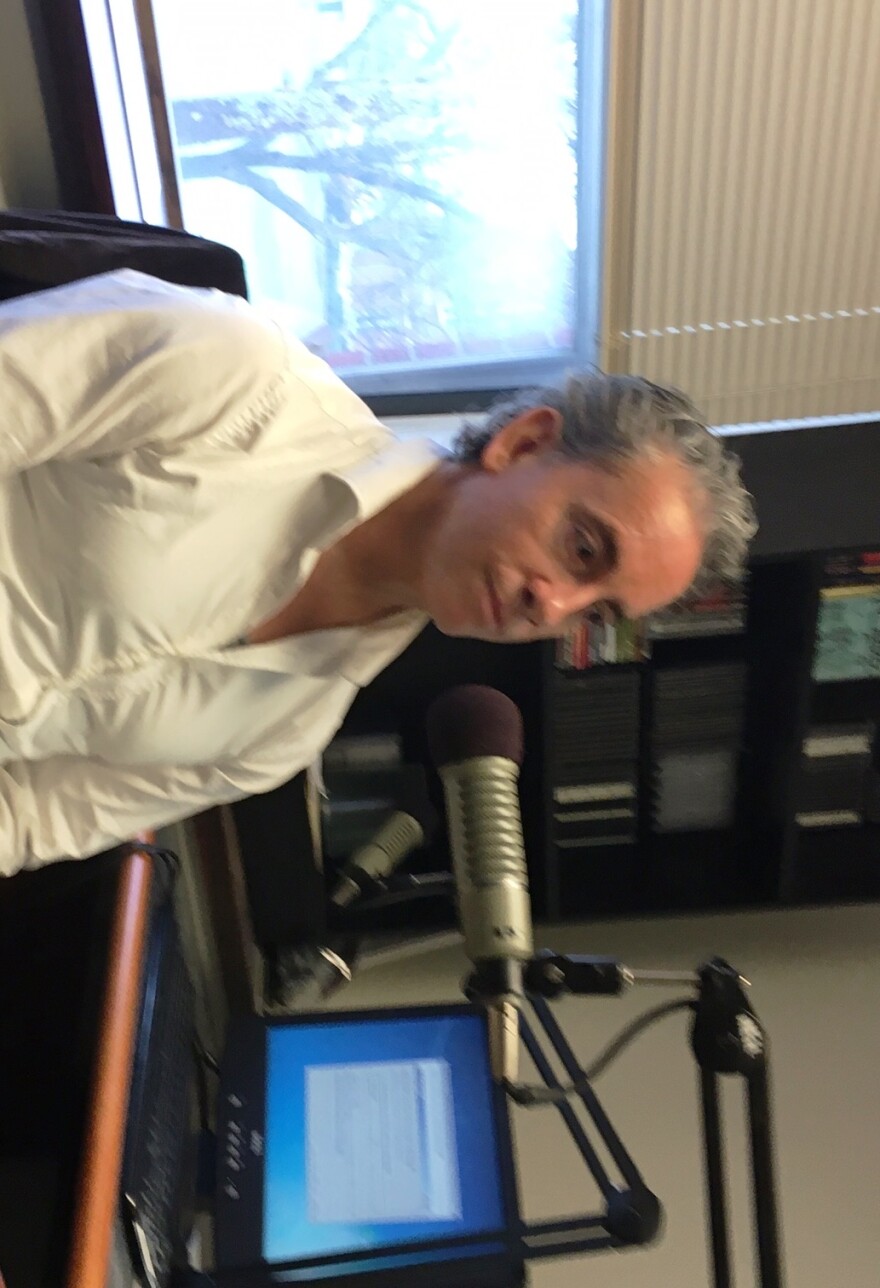Identity can be a tricky sea to navigate, particularly when dealing with matters of ethnicity and culture. Dr. Frederick Luis Aldama discusses how, in order to continue toward the long-term goal of a "post-racial" society, we need to build some understanding of identity first.
Mark Haslett: Today on North By Northeast we’re concluding our conversation with Latino culture specialist Frederick Luis Aldama. He’s a Professor of English at The Ohio State University. Aldama spoke on the campus of Texas A&M University-Commerce last week. One topic that often challenges people in cultural studies is how to assert identity while at the same time moving toward social harmony. Critics have dismissed some kinds of cultural studies as divisive. Aldama suggests that in order for harmony between cultures to exist, that it’s necessary to have perceptions about minority cultures match reality. That can mean some establishment of identity.
Frederick Luis Aldama: We’re at a point where we still, in many ways, have to essentialize our identities precisely because people outside of our community, outside of a sort of Latino ancestral heritage and experience, in fact, haven’t seen us. To make visible groups, in general, that have been typically made invisible or marginalized, you have to sort of make those moves. At the same time, of course, we don’t want to box ourselves into essentialist categories, where we can’t breathe and where we cant show ourselves as complex human beings. We haven’t arrived yet, even though, with Obama’s coming into the Presidency and these claims of a post-race nation. We’re not there, and that is very visible every day in the news that we read and the way that Latinos continue to be either invisible, and when they are visible, they are visible as gangbangers, hyper-sexualized women, etc. So to push back against those stereotypes, we actually have to, in many ways, fall back onto types that resist. We’re not about censoring, but we’re about opening the doors to allowing more, many more, types, and that will variegate. That will create the varied landscape that we are looking for. Eventually, the idea would be that we are in a post-race society, and we can just be the complex human beings as everybody else is, but for right now, it’s a strategic essentialism that’s being enacted.
Haslett: In closing, Aldama expressed his hope that others in the field of Latino cultural studies will keep their focus outward on the culture itself.
Aldama: The study of Latino pop culture has resonances beyond the scholarship on these particular objects that I’m interested in. I would say my last, sort of lasting comment is that scholarship – my scholarship and the scholarship of those around me – is not just isolated or scholarship for its own sake. It has a much deeper implication about what it means to be living in a society where the social tissue itself is ripped apart, and especially for communities, such as those as the new generation of Latinos coming up, where they do not have access to education, access to the kinds of tools, the concepts, the creative potentialities that they can realize as human beings in the world.
Haslett: Dr. Frederick Luis Aldama, who spoke at A&M-Commerce this month. You can find this conversation and two others from the same interview online at KETR.org – look under North By Northeast. For KETR news, this is Mark Haslett.





